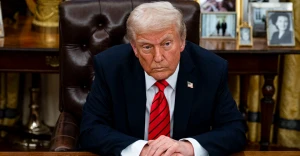
US State Department assesses Ukraine's press as "partially free"
The US State Department has published a report for 2022, assessing Ukraine's press as "partially free"
The US State Department has published a report for 2022, assessing Ukraine's press as "partially free"
The full report on human rights practices in 2022 has been published on the website of the US Department of State.
In the part of the report that focuses on strengthening state control over the media, it is noted that the non-governmental organization Freedom House has rated the press in Ukraine as "partially free." Independent media and online news sites were active and expressed a wide range of views, but the government took some measures to restrict media and freedom of expression, ostensibly to counter Russian disinformation and address other wartime security concerns.
Since the beginning of the full-scale Russian invasion, the television media have been coalescing around government programs. At the end of February, six TV channels (1+1, Ukraine 24, Inter, ICTV, the public broadcaster National Public Broadcasting Company, and the state-owned Rada) began broadcasting around the clock in Ukrainian to convey a unified wartime message to the public.
In March, the National Security and Defense Council issued an order to unify the country's information flow under martial law, requiring all national TV channels to broadcast a single 24-hour program.
Subsequently, observers of the situation expressed concern that the unified broadcasting could ultimately facilitate state control over broadcasting. Channels considered to be affiliated with opposition parties, including Channel 5, Pryamiy and Espreso TV, were not officially invited to participate in the unified broadcasting, although from time to time these three channels voluntarily broadcast the 24-hour programming of other channels.
Also, according to the State Department, officials denied the channels access to government procedures after they covered "sensitive issues."
There were also reports of continued financial and political pressure on UA:PBC to align with and support government policies. Local branches of UA:PBC alleged that high-ranking representatives of the Presidential Office and other government agencies lobbied the broadcaster's supervisory board to support their preferred candidates for key management positions.
The State Department noted that there were also cases of the government censoring and restricting content, punishing individuals and media outlets for allegedly holding pro-Russian views and spreading disinformation from Russia by imposing financial sanctions, banning websites, and blocking TV channels.
National security
The State Department notes that since the start of the full-scale invasion, both independent and state media have periodically resorted to self-censorship when covering stories that may have been deemed 'insufficiently patriotic' by the public or used by Russia for propaganda purposes," the report says.
"On February 10, the National Council on TV and Radio Broadcast announced unscheduled inspections of six television channels: Ukraine, Channel 5, Pryamiy, Ukraine 24, Espreso, and Channel 4, claiming their broadcasts contained information constituting a state secret or other information protected by the law," the report says.
-
According to Detector Media, in May 2022, Espreso TV became one of the leaders in terms of the number of views on YouTube.
-
Subsequently, Mykhailo Podoliak, an advisor to the head of the Presidential Office, said that channels from the so-called Petro Poroshenko pool (Channel 5, Pryamiy, and Espreso) were removed from the digital airwaves because they partially broadcast Poroshenko, which allegedly caused harm due to the 5th president's "narcissism."
-
Subsequently, an electronic petition was registered to return Espreso, Channel 5, and Pryamiy to the digital airwaves. As of July 1, it had gained the 25,000 votes necessary for further consideration.
-
On July 8, Ukraine’s Business Ombudsman Roman Vashchuk emphasized that the implementation of a unified information policy in times of war is a conceptually correct step. However, it is important not only to introduce the right ideas but also to ensure their proper implementation.
-
The head of Ukraine’s Ministry of Culture, Oleksandr Tkachenko, said that Espreso, Channel 5 and Pryamiy were not involved in the telethon because of the need to change its format or the channels' vision of it.
- News











































